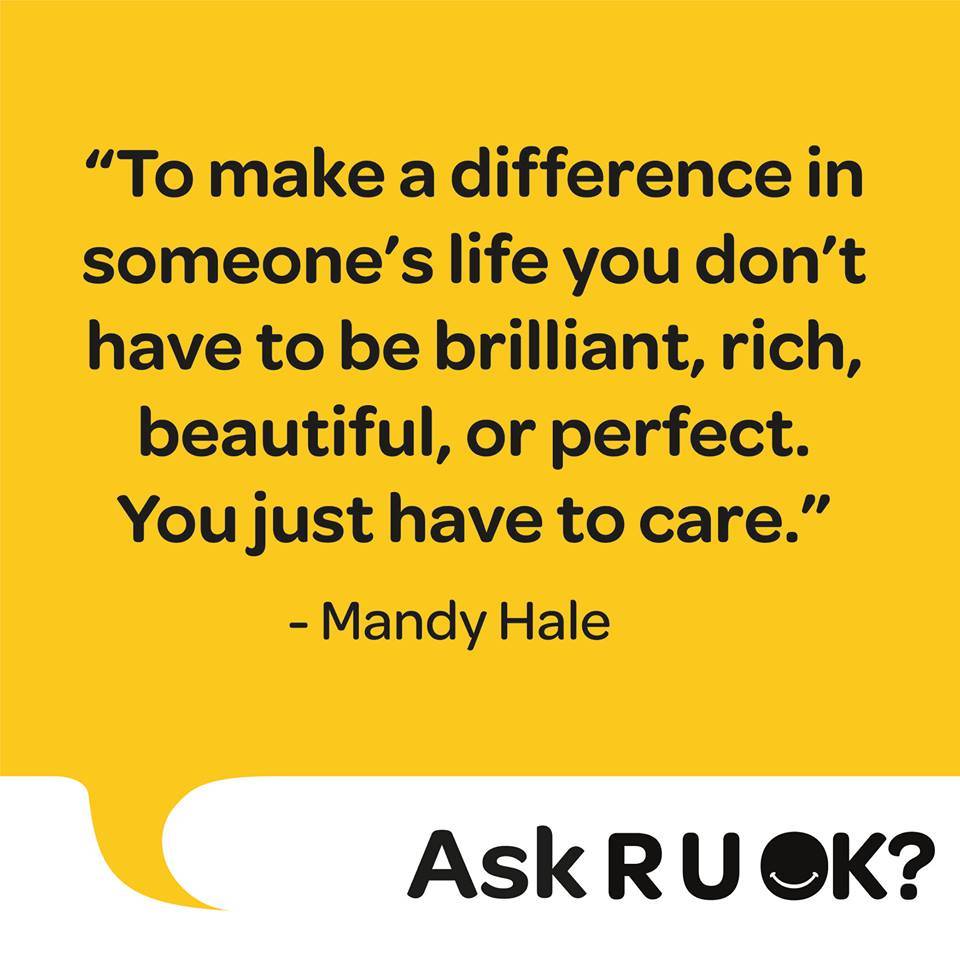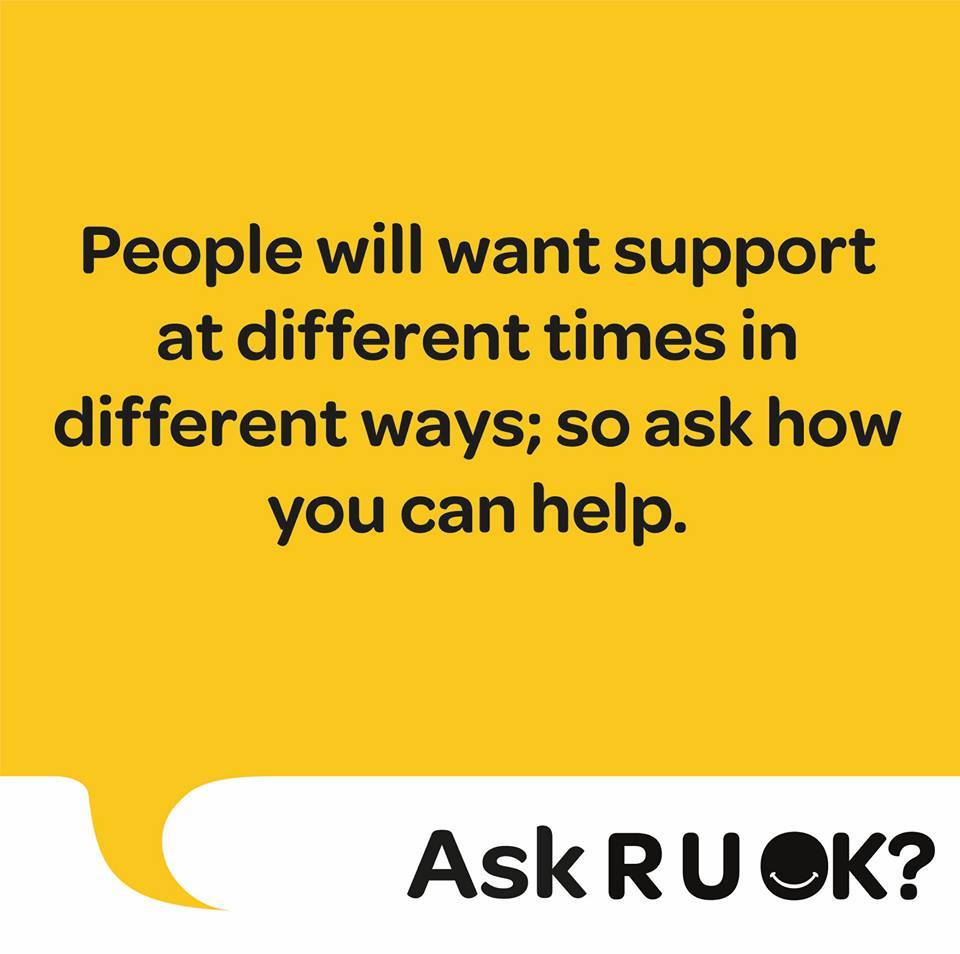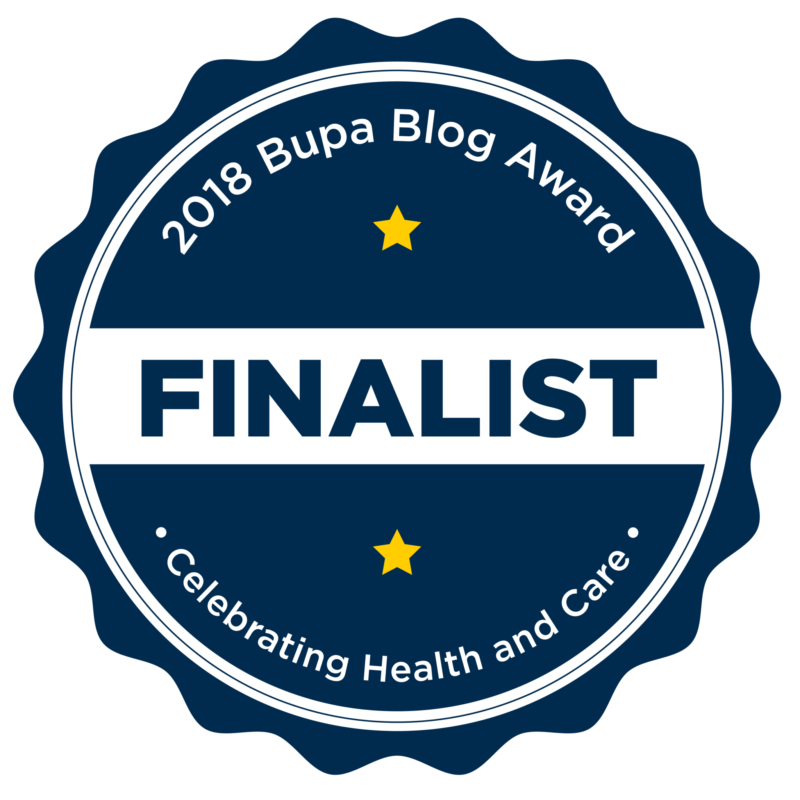Editors note: This is a story that I shared with you all on R U OK? Day last year.
With today being R U OK? Day, I thought I would share it with you all again, as I know that I have a lot of new followers, and people that may be interested in hearing my mental health story. This story is an important one – and one that I wanted to share for a looooong time, before I actually did. I hope it gives you a real-life insight into mental health and how it affected me…
So I’ve umm’d and ahhh’d about sharing this story with you all for a few weeks now.
It’s a piece about mental illness, and my personal story.
I wanted to share this post with you to show that I don’t always have ‘stylish moments’ (as this blog may suggest) and this is something I have had to deal with for a few years now.
Whilst I have experienced mental illness first hand, I have seen others close to me that I love, go through it too.
Mental illness runs strong throughout my family, and is something that some days absolutely takes over our lives, and other days makes us so much stronger.
Mental illness sucks. It’s shit and it’s never anything anyone should have to experience.
BUT – it’s real, it’s there and it has to be dealt with.
Throughout most of Year 11 and 12, when I was in the thick of senior school and dealing with the pressures of being a teenager and having adult-like responsibilities; I began suffering from Obsessive Compulsive Disorder (OCD) and strong anxiety. This was my first time experiencing these disorders, and is a time of my life that I will never, ever forget.
Although I’m not and never will be 100% sure as to what triggered this sudden onset of mental illness (other than having a strong family history), it was something that I had to deal with, whilst also managing studying my senior school years and passing my grades (which was extremely stressful in itself).
For those who are unaware, OCD is characterised by the presence of recurring intrusive and unwanted thoughts, images, impulses, obsessions and repetitive behavioural and mental rituals. For someone experiencing OCD, particular thoughts can become obsessive (recurring), and can influence an unhealthy pattern of behaviour that can cause difficulty in performing day-to-day activities, as constant obsessions or compulsions (acts performed to alleviate the distress or neutralise the thought), are present.
For me, it meant that I was having to overcome compulsions, by following them through with a particular action that I would make up in my mind. Most of these compulsions would involve me convincing myself that something bad was going to happen, if I didn’t do a particular thing at a particular time.
In order to overcome these compulsions, I’d follow through with a variety of weird actions, that at the time felt completely sane and normal, but now I think back and realise they really were weird and took up a lot of my time.
Some of these actions included having to perform repetitive chants in my head as I walked to the bus stop each morning before school, or I’d have to touch a car door 10+ times with EACH hand over and over until I felt that I had done it properly (sometimes I would stand there for 10 minutes and do this repeatedly). Washing my hands over and over became a frequent ritual for me, as I felt the need to “wash” my horrible thoughts away. I was a chronic counter, repeatedly counting everything I could see in sight, and was constantly checking everything – from whether or not I’d shut the front door, locked the house, or turned my hair straightener off.
Some of you may be thinking that these are normal things to check, and they are; but not when you’re repeatedly checking and obsessing your thoughts over them each and every single day.
Some compulsions were easy to follow through with, whilst others took time and really affected my day to day activities and well-being. They were a massive burden, but for some reason; I decided to make them a part of my life.
These actions varied from day to day and the intensity of them generally depended on where I was, and what my worry was at the time. They weren’t fun, but at the time I thought they were completely normal, and something that I was able to manage (well I thought so at least).
Along with the OCD, I experienced really strong anxiety that would result in countless evenings in terror and crying for hours and hours over silly things that I had blown into massive proportion.
Of course, we all know that teenagers go through periods where they are emotional and get upset and have issues, but this was different; this was a mental illness.
I thank my lucky stars every single day that I was lucky enough to have incredible parents who were there for me every step of the way, and decided it would be best for me to see a professional psychologist and get some help. My options were either medication, or Cognitive Behavioral Therapy (CBT) and due to me still being in school at the time and quite young, we opted against medication and instead opted for the CBT.
This was and still is the right course of action for me, and is what works best.
 Today, I deal with my anxiety and manage it in a few ways.
Today, I deal with my anxiety and manage it in a few ways.
The first being through keeping up with a consistent exercise routine. I’m not obsessed with exercising, I just know that in order to keep my mind happy and healthy, I must do some form of it each day. Whether it be a HIIT session, yoga, a run or walk, I do it and I manage my anxiety this way. I also maintain a healthy eating/well-being lifestyle and fuel my body with good quality, nourishing food that makes me feel good on the inside.
The second management technique I use is practicing my cognitive therapy techniques (breathing, relaxation etc), whilst the third, is ensuring that I am constantly surrounding myself with positive and uplifting people, and not getting stuck doing things that don’t benefit me or make me happy.
These are the strategies that work best for me and I’m so glad that I was able to find a coping mechanism this way.
For others, they are not so lucky.
Today is R U OK? Day.
R U OK? is a not-for-profit suicide prevention organisation asking you to take the initiative to ask your friends and loved ones one simple question that can make a huge difference.
I never contemplated suicide, however many people who suffer from mental illness do.
Suicide is the leading cause of death for young men and women under 25 (more than car accidents or skin cancer), and sadly is still a topic many feel uncomfortable discussing.
Statistics show one in four young Aussies battle some kind of mental challenge, whether it be anxiety or depression and now more than ever it’s more important they feel safe enough to speak up if they’re struggling.

Since launching eight years ago, R U OK? works tirelessly to encourage people to ask one another that question openly, particularly on National R U OK? Day.
Personally, I think that this should happen every day, or on any day that you see a friend, family member, colleague or complete stranger having problems, or indicating that they are not OK. What we sometimes fail to remember is that a lot of people go through silent paint that we cannot see, and mental illness is definitely one of these.
It’s important to remember that by asking this one simple question, you could literally save a life.

I’m really passionate about promoting awareness around mental illness and removing the stigma that’s associated with it. It’s something that both myself and close family members of mine deal with everyday, and is something that should never be hidden, made fun of, or forgotten about.
I would hope that none of you look at or treat a person differently, just because they suffer or have suffered from a mental illness. It’s actually waaaaaay more common than you would think, and you’d be surprised to know that A LOT of people suffer from it every day.
Todayu, don’t just post a social media post in support of R U OK? Day. Whilst doing this does provide awareness of the day, it’s just not enough.
On R U OK? Day I want you all to connect with loved ones, friends, family, work colleagues and even strangers, and strike up conversations and check in on people. Have an actual conversation, whether it be face to face or over the phone, and show them that you are there for support and for a chat.
You never know, it could really change or save someone’s life.
I didn’t write this post to scare or alarm you. I wrote it because I want to raise awareness and show you that mental illness is not uncommon – it’s an illness that you just can’t always “see” on someone’s face. I’ve struggled with mine for many years, and am lucky that I have come through and found a way to deal with it and manage it.
Let’s remove the stigma surrounding mental illness, and make it OK to ask someone if they are OK.
Readers seeking assistance can contact Lifeline on 13 11 14, the Suicide Call Back Service on 1300 659 467 or MensLine Australia on 1300 78 99 78.
Read similar posts to this…
Mental Health: Why I Share My Story With You / Things I Do For My Mental Health Every Day
